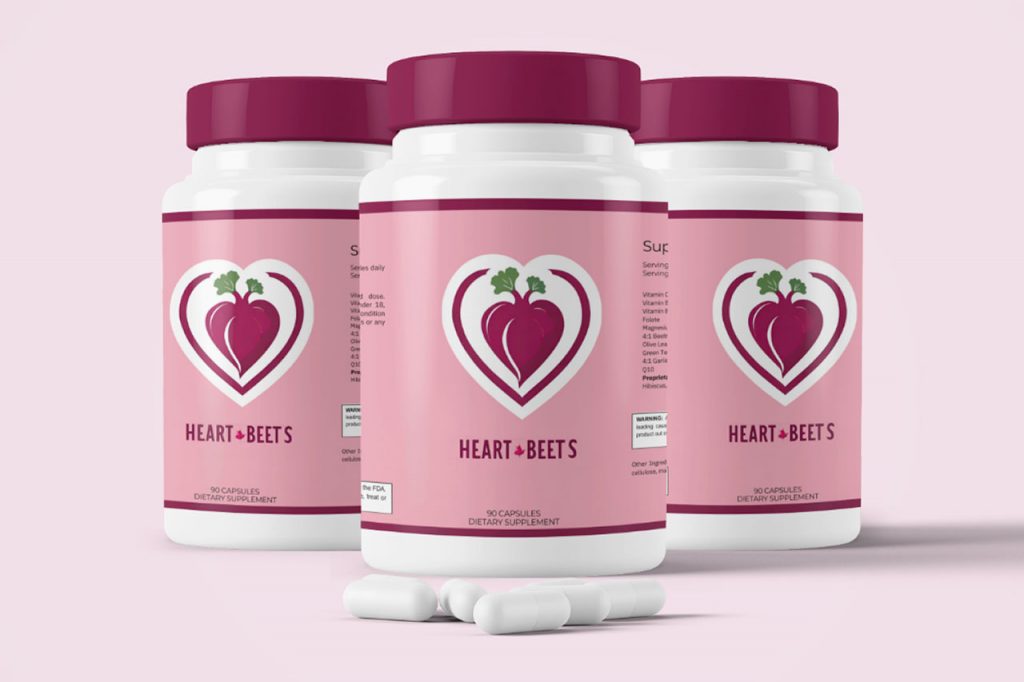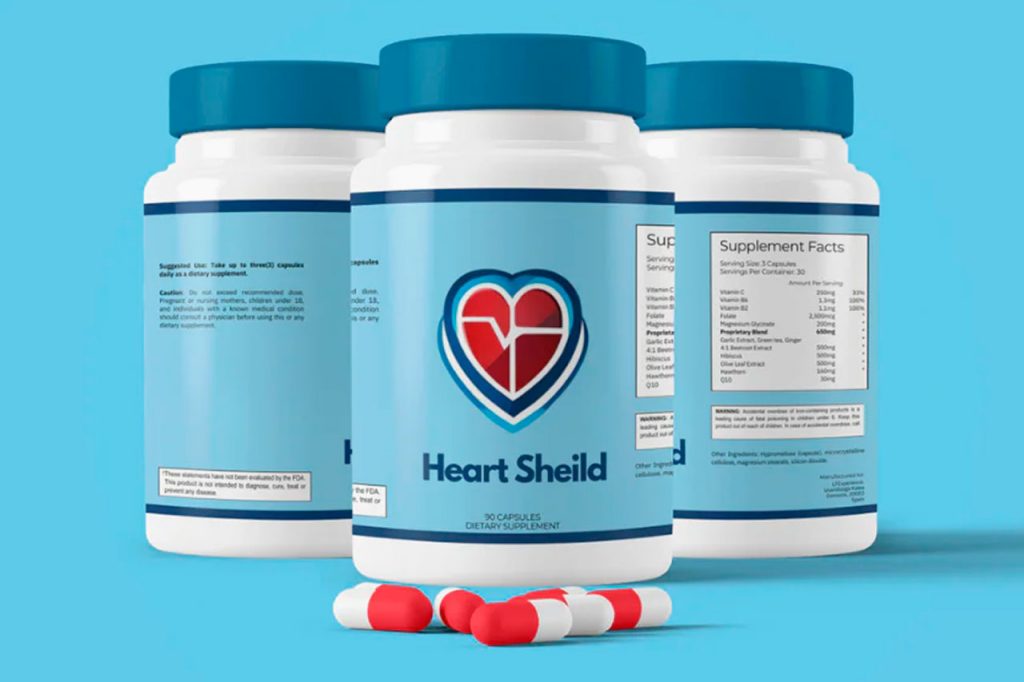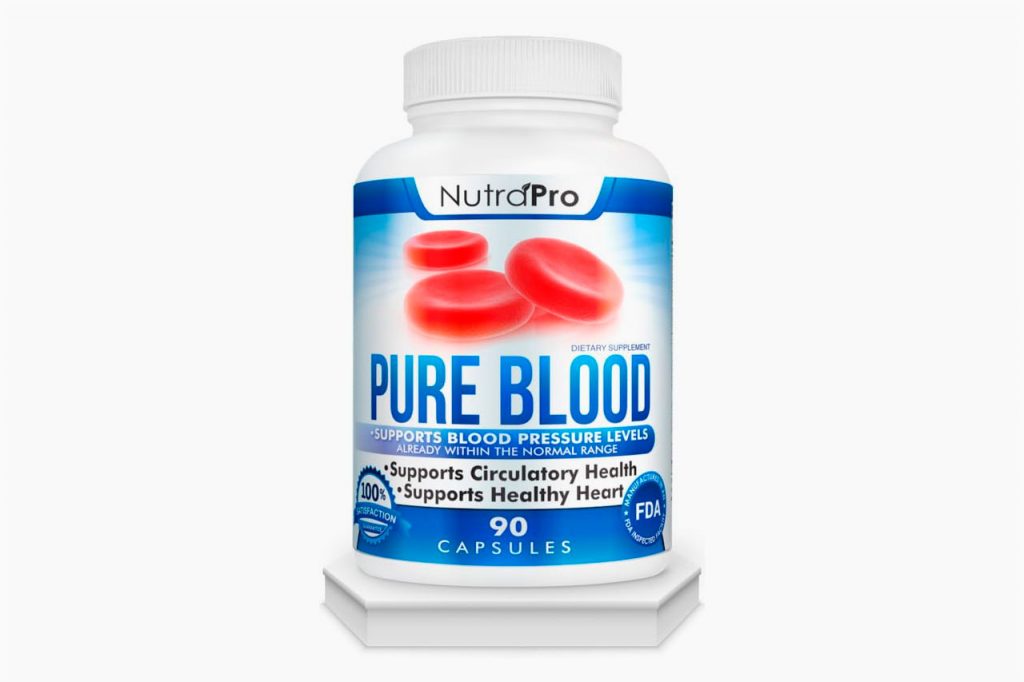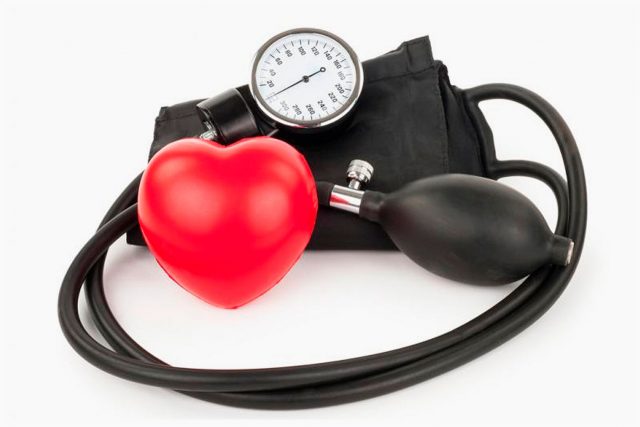High blood pressure, also known as hypertension, is a common health condition that affects millions of people worldwide.
While lifestyle changes and medication are the standard treatment options, nutritional or dietary supplements have gained greater attention in recent years for their potential to lower blood pressure naturally.
In this article, we will explore the effectiveness of nutritional supplement products, such as HeartBeets and HeartSheild, in managing high blood pressure and suggest which works best. We’ll delve into the scientific evidence behind these supplements and their potential benefits to help provide you with insights into natural approaches for maintaining healthy blood pressure levels.
What Is High Blood Pressure?
Before we discuss the best supplements for high blood pressure (HBP supplement), it’s worth briefly exploring what the condition entails and what it is caused by.
High blood pressure occurs when the force of blood vessels against the artery walls is consistently too high. Various factors, including genetics, unhealthy lifestyle choices such as a high-sodium diet, lack of physical activity, chronic stress, and certain medical conditions, can cause this.
The symptoms of high blood pressure may not be noticeable, earning it the nickname “the silent killer.” However, some individuals may experience headaches, fatigue, shortness of breath, dizziness, and nosebleeds. It’s crucial to monitor blood pressure regularly, as untreated hypertension can lead to severe health complications such as heart disease, stroke, kidney damage, and even vision loss.
Blood pressure is measured using two numbers: systolic and diastolic. Systolic blood pressure occurs when the heart beats, while diastolic blood pressure occurs when the heart rests between beats. A regular blood pressure reading is typically between 90/60 mmHg and 120/80 mmHg. The higher number represents the systolic blood pressure levels, and the lower number represents the diastolic blood pressure levels.
If your blood pressure exceeds this, don’t panic. Lifestyle changes, medication, and nutritional supplements can effectively manage high blood pressure.
The Best Supplements to Help Lower Blood Pressure
Blood pressure supplements, sometimes called dietary supplements, can come in various forms. Some are designed to raise blood pressure, but this article focuses on supplements that help lower blood pressure.
These products contain vitamins, minerals, herbs, amino acids, and enzymes that work together to reduce high blood pressure.
These formulations are based on considerable advances in nutritional science over the past two decades. However, natural medicines tend not to be certified by government health agencies, which means unscrupulous sellers sell supplements that do not work and may even be hazardous to your health.
That’s why this article presents supplements that have demonstrated their effectiveness and whose formulations are backed up by scientific research.
Before taking any supplement, it is good practice to consult with your physician.
- HeartBeets
- HeartSheild
- NutraPro Heart Health and Blood Pressure Support
HeartBeets: Best Overall Supplement to Reduce Blood Pressure

HeartBeets is a capsule supplement designed to naturally boost blood vessel health, enhance nitric oxide production for improved circulation, and ultimately reduce cardiovascular disease risk.
It contains 13 high-dose natural ingredients, each supported by scientific studies, to effectively treat hypertension and support heart health.
Key Ingredients and Their Functions
- Vitamin C (250mg): Supports blood vessel health, nitric oxide production, and endothelial function. The chosen dose is higher than the RDI but is based on recent studies suggesting more potent doses of Vitamin C lowers blood pressure more effectively.
- Magnesium Glycinate (200mg): This is a more effective form of magnesium that helps regulate blood pressure, reduce arterial stiffness, and acts as an anti-inflammatory. A dose of 350mg of pure magnesium shows positive results for lowering blood pressure, but 200 mg is more than sufficient since we use magnesium glycinate.
- Vitamin B6 (1.3mg) and Vitamin B2 (1.1mg): B6 regulates homocysteine levels, supports neurotransmitter production, and aids in protein metabolism. In contrast, B2 supports energy production, acts as an antioxidant, and activates other B vitamins. We opted for the RDI of each B Vitamin since research into their capacities to reduce blood pressure directly remains tentative.
- Folate (2,500mcg): Folate plays a crucial role in nitric oxide synthesis, which, in turn, is essential for blood vessel regulation. It also supports the metabolism of homocysteine and red blood cell production. The selected dose is based on studies indicating that high doses of folate supplementation are more effective at reducing the risk of hypertension. Indeed, HeartBeets contains much more folate than other blood pressure supplements.
- Beetroot Extract (500mg 4:1): Beetroot is a root vegetable that supports cardiovascular health. It promotes vasodilation by increasing nitric oxide levels and lowering blood pressure. The chosen dose is based on safety and effectiveness, enhanced by using an extract that concentrates the best parts of Beetroot.
- Garlic Powder (150mg 4:1): Garlic Powder offers vasodilatory effects, improvements in endothelial function, and potential anti-inflammatory effects. The selected dose aligns with studies demonstrating the anti-hypertensive effects of garlic powder.
- Olive Leaf (500mg): Associated with vasodilation, antioxidant, and anti-inflammatory properties, the chosen dose is based on its significant reduction in blood pressure observed in studies.
- Green Tea (250mg): Green tea has been linked to reduced blood pressure, support for cardiovascular health, and lower cholesterol levels. Our chosen dose coheres with studies suggesting modest systolic and diastolic blood pressure reductions.
It’s hard to pick holes in HeartBeets formula, a long list of complementary ingredients at substantial doses backed up by peer-reviewed research.
HeartSheild: Second Best Supplement for Lowering High Blood Pressure

HeartSheild’s formula is very similar to that of HeartBeets, but there are some differences which, to our mind, means HeartBeets comes out on top.
Both formulas rely heavily on potent vitamin C, beetroot extract, folate, hawthorn, olive leaf, ginger, garlic, and green tea.
The main difference between the two products lies in their proprietary blends. HeartBeets has a nearly 1,000mg proprietary blend of ginger, hibiscus, and hawthorn. HeartSheild, meanwhile, goes for a 650mg proprietary blend of garlic extract, green tea, and ginger.
This difference is pretty marginal and may come down to personal preference. In our experiences, though, using HeartSheild correlated with slight digestion issues among several team members. Upon researching whether this was common among other users, we struggled to find many customer reviews online.
HeartShield isn’t as good as HearBeets. However, this does not imply that the treatment is entirely ineffective. As with HeartBeets, its formula is packed with well-dosed ingredients proven to reduce blood pressure.
NutraPro Heart Health and Blood Pressure Support: Best Budget Option for Mild Hypertension
 On the surface, NutraPro Heart Health and Blood Pressure Support Supplement contains many of the same ingredients as HeartBeets and HeartSheild. It includes Vitamins B6, B12, C, folate, hibiscus, olive leaf, garlic powder, and more.
On the surface, NutraPro Heart Health and Blood Pressure Support Supplement contains many of the same ingredients as HeartBeets and HeartSheild. It includes Vitamins B6, B12, C, folate, hibiscus, olive leaf, garlic powder, and more.
It does so at half the price of the other two, which should make it the best option, right?
However, a closer look reveals that while it contains various beneficial ingredients, the dosing for most of these is notably lower than HeartBeets and HeartSheild.
For instance, NutraPro contains 170mcg of folate. That’s ten times less than what you get with the other two. The 60mg of Vitamin C is also probably too low to significantly impact blood pressure, as supported by a review and meta-analysis of randomized controlled trials investigating the relationship.
To enjoy the same benefits with NutroPro as you would with HeartBeets and HeartSheild, you would have to consume more of it, which is not only inadvisable from a medical standpoint but would also eat into any cost savings from purchasing a cheaper product.
That said, there is undoubtedly a market for NutroPro Heart Health and Blood Pressure Support natural supplements, but that is for those who may want to take preventative action to stop their blood pressure from escalating rather than those who are actively working to bring it down.
This isn’t really how NutraPro positions itself, though. Instead, it seems a classic example of a legacy product that hasn’t entirely kept up with modern nutritional science. But if you are on a budget, your blood pressure issues are mild, and you want to keep up with any potential problems, NutroPro is still a solid choice. Just don’t expect significant improvements.
How Can I Lower My High Blood Pressure Fast?
Those looking for quicker and more dramatic results need more than NutraPro. At the same time, those afflicted with high blood pressure need to exercise caution because there is no ‘quick fix’ when it comes to this condition.
Rapidly lowering high blood pressure can be dangerous and inadvisable due to the potential health risks it poses. When blood pressure is quickly and significantly reduced, it can lead to dizziness, fainting, fatigue, and even organ damage. For individuals with certain medical conditions, such as coronary heart disease or heart failure, a rapid decrease in blood pressure can have serious consequences. It may even lead to life-threatening events like heart attacks or strokes.
Moreover, abrupt changes in blood pressure can strain the heart and other vital organs, disrupting their normal functioning and causing potential harm. It’s important to note that sudden and drastic reductions in blood pressure are not well-tolerated by the body and can lead to adverse health outcomes.
Therefore, managing high blood pressure through gradual, natural, and sustained approaches under healthcare professionals’ guidance is crucial. Lifestyle modifications, dietary changes, regular physical activity, and, if necessary, medication adjustments should be implemented gradually to ensure the safety and well-being of individuals seeking to lower their blood pressure.
When reviewing supplements to lower blood pressure, it’s essential to emphasize the importance of seeking professional medical advice and avoiding the temptation to pursue rapid solutions that may carry significant health risks. The focus should be on promoting comprehensive and sustainable approaches to blood pressure management that prioritize long-term health and well-being.
The Best Supplements to Help Lower Blood Pressure Conclusion
In this review, we’ve considered three leading supplements for lowering high blood pressure that share much in common: HeartBeets, HeartSheild, and NutraPro.
We’ve grounded our analysis primarily on the scientific basis behind each product’s formulation, not just which ingredients have been chosen but how much of each ingredient.
From this, we can confidently conclude that HeartBeets is the best supplement for lowering blood pressure. It features a comprehensive blend of 13 natural ingredients supported by scientific studies to treat hypertension and effectively help blood vessels and heart health.
Similarly, we believe HeartSheild is a good, reliable option, although with a slightly more limited proprietary blend.
NutraPro Heart Health and Blood Pressure Support is the best budget option for mild hypertension, offering a more affordable choice for those whose issues are not severe or acting preventatively. This is because the dosing of the ingredients in NutraPro is notably lower, potentially impacting its effectiveness in reducing blood pressure. It also lacks certain vital ingredients, such as Beetroot.
We encourage you to consider each supplement’s dosages and overall value and talk with a physician before incorporating any of these supplements into your regimen.
By Chris Bates








